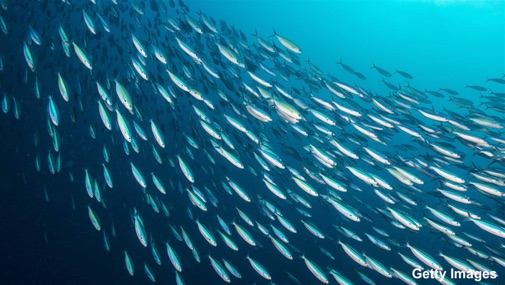News
17 December 2020
WTO: deadlock in the negotiations for reducing subsidies encouraging overfishing
For years, WTO has been in almost clinically dead, mainly because of the failure, due to the opposition from the US, to nominate members of its Dispute settlement body that is indispensable to the fulfilling of its mission by this international organisation.
Many of those who criticised its creation and its free market ideology have come to regret this multilateral organisation, the only one that can produce legally binding decisions for its member countries. These regrets are a consequence of the violence of the negotiations and the arm-twisting leading to bilateral trade “deals” so dear to the future ex-tenant of the White House.
The only negotiations of importance that are still ongoing at WTO are those on the elimination of certain types of fisheries subsidies.
These negotiations, which started in 2001 (Doha Ministerial Conference), collapsed on December 14, after having been relaunched in 2015 following the approval of the UN Sustainable Development Goals (SDGs).
Subsidies at stake are those that contribute to illegal, unreported and unregulated (IUU) fishing and to overcapacity and overfishing responsible for the depletion of the ocean’s fishing stocks. In 2018, global fish production is estimated to have reached about 179 million tonnes (of which almost half by China, Indonesia, Peru, India, Russia, the US and Vietnam), following a regular increase of several years. The subsidies targeted in the negotiations amounted to approximately $22 billion out of a total of just over $35 billion benefitting the sector. The proposed reduction was strongly supported by environmental NGOs [read].

The state of world fisheries is dramatic. According to the FAO, 34% of fishing stocks of the planet suffer from overfishing, compared to 10% in 1974. This situation could lead to a collapse of a sector that is the source of livelihood of around 39 million people in the world, a large part of whom are small fisherfolk who are often among the poorer population groups [read]. Moreover, the quality of sea products has considerably degraded over the years, because of pollution [read for example].
The failure of negotiations which should normally have been concluded before the end of 2020 can be explained by deep disagreements. Some governments (including the members of the European Union) are in favour of removing altogether the subsidies having a negative impact on fishing stocks, but in the case where their effect is compensated by a rigorous management. Others wish their total removal, while others prefer caps on subsidies. Others, finally, would like to see caps imposed on subsidies in the countries where they are largest, or a concentration of subsidy cuts directed to industrial fishing (around 80% of total subsidies), while small fisherfolk could continue to benefit from existing subsidies [read].
As often the case at WTO, a differential treatment was envisaged for “developing countries”. These countries should, in particular, be given more freedom to subsidise fisheries, some technical assistance and training support for the workers in the sector. One of the pending issues is that China, which operates the world’s largest distant-water fleet and is among the countries where fisheries subsidies are highest, is as yet part of that group.
Negotiations will, however, resume on 18 January 2021, on the ground that the deadlock experienced this year could be a result of difficulties related to the COVID-19 pandemic. There are however differing views as to the possibility of finding a compromise among countries that are sometimes entrenched in very different positions.
Meanwhile, fishing continues and fishing stocks are being depleted…
—————————————
To know more:
-
•M. Godfrey, WTO talks on fishing subsidies deal to resume 18 January, SeafoodSource, 2020.
-
•M. Barange et al., The State of World Fisheries and Aquaculture 2020 - Sustainability in action, FAO 2020.
-
•Stop funding overfishing, More than one third of the world’s fishing stocks are overexploited - 25 reasons to reach a deal, 2020.
-
•OMC, Factsheet: Negotiations on fisheries subsidies, 2020.
Selection of past articles on hungerexplained.org related to the topic:
For your comments and reactions: hungerexpl@gmail.com
Last update: December 2020


